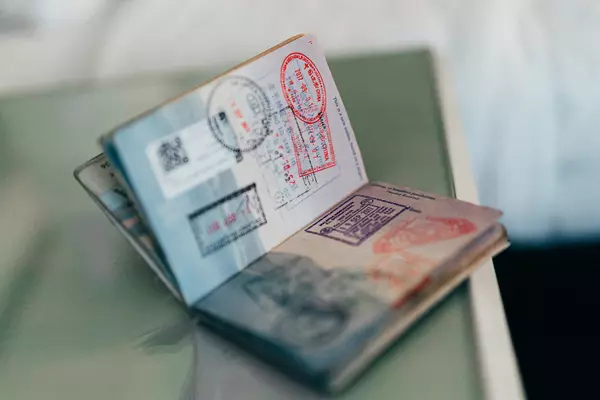On December 19, 2023, Ontario’s Superior Court of Justice issued a landmark ruling, declaring restrictions on transmitting Canadian citizenship beyond the first generation born abroad as “unconstitutional.”
Granted one year to address the judgement, Canada’s government introduced Bill C-71 to amend the Citizenship Act, expanding citizenship access for persons born abroad to Canadian parents who were also born abroad. Bill C-71 raises crucial questions about the nature of citizenship: Who is entitled to it and on what grounds? What is the relationship between social and legal membership? What do citizens, living at home, owe compatriots living abroad?
To discuss these questions, the Harney Program in Ethnic, Immigration and Pluralism Studies convened a panel of scholars, advocates, and policy practitioners at the Munk School of Global Affairs and Public Policy on October 10th, 2024.

Uyen Hoang, Director General, Citizenship Policy at Immigration, Refugees and Citizenship Canada (IRCC) described the Bill, formally ‘An Act to Amend the Citizenship Act (2024),’ and several of its key reforms. It will:
- Establish a new framework for citizenship by descent, conferring access to citizenship beyond the first generation, based on a substantial connection to Canada.
- Restore citizenship to “Lost Canadians”—those who lost or never acquired it due to outdated provisions.
Under this proposed amendment, citizenship eligibility for those beyond the first generation will require a minimum of 1,095 days of physical presence in Canada to satisfy the “substantial connection” requirement.
Kelsey P. Norman, a Fellow and Director of the Women’s Rights, Human Rights & Refugees program at Rice University, shared her personal story of citizenship—originally chronicled in a The Globe and Mail editorial: "I am a Canadian Citizen. Why Can’t My Son Be a Canadian Citizen, Too?". Although her mother and grandmother were born in Canada, Norman herself was born in the United States. As she acquired Canadian citizenship by descent, the current Act means her son, also born in the U.S., is ineligible for Canadian citizenship—despite Norman’s substantive connections to Canada, including spending summers here, studying at the University of Toronto, learning French, paying taxes, and previously working in the country.
She expressed frustration that, because she remained in the U.S. for employment and gave birth there, she was barred from passing on her Canadian citizenship to her son. According to Norman, allowing some Canadian citizens—those born in Canada—to transmit their nationality while denying the same right to others—Canadians by descent and naturalized Canadians—creates an unequal, hierarchical system that undermines what it means to be Canadian. Limiting citizenship transmission to one generation disregards personal and transnational ties, basing inclusion or exclusion on arbitrary factors such as birthplace, which individuals cannot control.
Professor Ayelet Shachar, Director of the Harney Program and a renowned scholar of citizenship theory, law, and ethics, addressed how a substantive connection is defined.
In Canada, citizenship is acquired through one of three avenues: (1) naturalization, (2) jus soli, or (3) jus sanguinis. Naturalization is the legal process by which a foreign national acquires citizenship to a country after birth. The principle of jus soli (“right of soil”) is codified in the Citizenship Act (s. 3(1)(a). This principle, originating historically from Calvin’s Case (1608), establishes that all individuals born within a state’s territory are entitled to its rights and protections. The final avenue— jus sanguinis (“right of blood”)—bases citizenship on lineage, where nationality is determined by one or both parents.
The proposed bill adopts residency—the 1,095 days of physical presence—as the criterion for its substantial connection test. Professor Shachar noted that, unlike European laws governing jus sanguinis (citizenship by descent), Canada’s approach lacks an ethno-national component of citizenship passed down the generational line in perpetuity. The proposed bill further refrains from imposing cultural integration tests, focusing instead solely on physical presence within the country.
The last presenter, Professor Maarten Vink of the Global Citizenship Observatory at the European University Institute, is a leading expert on comparative citizenship laws and electoral rights. He contextualized Canada’s approach based on a comparison with the 191 countries in his GLOBALCIT Citizenship Law Dataset (v 2.0). Canada, for example, has 12 distinct routes to citizenship placing it in the middling ranks of the 191 countries, where the global norm is 11, but it is only one of 18 states that currently imposes a strict restriction of transmission of citizenship to the first generation born abroad.

Kelsey Norman
Allowing some Canadian citizens—those born in Canada—to transmit their nationality while denying the same right to others—Canadians by descent and naturalized Canadians—creates an unequal, hierarchical system that undermines what it means to be Canadian
As highlighted by the panel’s chair and moderator, Professor Phil Triadafilopoulos, Bill C-71 will make the pathways to citizenship clearer, offering families greater flexibility as they make decisions about working, studying, and raising children in Canada. Additionally, the speakers emphasized the gendered, racialized and socioeconomic impacts of current citizenship laws, particularly how Canadian women living abroad are forced to navigate significant decisions regarding where to live and when to have children—decisions that profoundly affect their financial, physical, and emotional well-being.
As Professor Shachar explained, Bill C-71 arguably moves Canada closer to a hybrid jus nexi model, one in which citizenship is based on ‘rootedness,’ where a substantive connection to a country is activated by the physical and temporal experience of actual residence in that country. As the December 2024 deadline to amend the Citizenship Act approaches, this panel discussion offered a timely and welcome forum to exploring the evolving dynamics of Canadian citizenship, its transmission, and its future.



